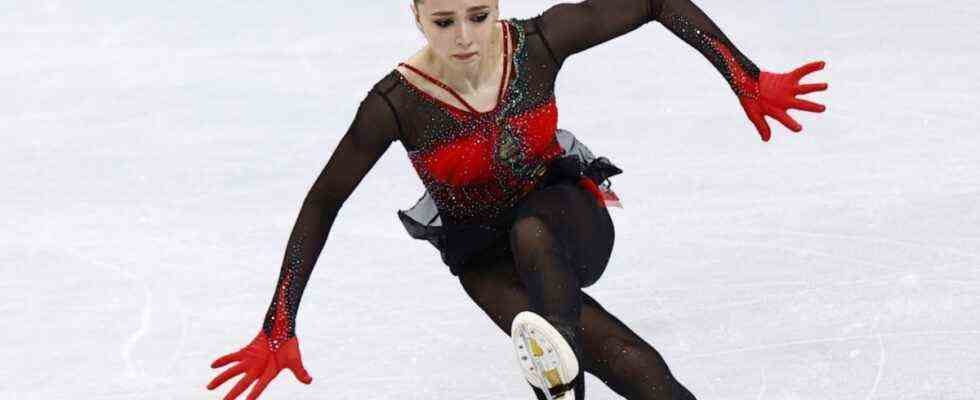After days of fuss over her doping offense, Russian figure skater Kamila Valiyeva finished fourth in the Olympic women’s singles. The 15-year-old was unable to defend her lead from the short program in Beijing on Thursday. Gold went to the Russian world champion Anna Schcherbakova with 255.95 points.
Silver went to her teammate Alexandra Trusowa, bronze went to the Japanese Kaori Sakamoto. Valiewa showed nerves and blundered several times in the freestyle. She fell during the quadruple salchow and the quadruple toe loop didn’t quite work either.
When the last note of Maurice Ravel’s “Bolero” faded away shortly before 10 p.m. local time, Valiyeva clapped her hands over her face. “She should have been protected. She was a shadow of herself,” analyzed the former figure skater and current ARD expert Katharina Witt.
With this result it is also clear that there will be a medal ceremony. The International Olympic Committee had announced that the result would be considered provisional and given an asterisk. The background is the positive doping test Valiyewas, who had previously led the Russian team to gold in Beijing.
The doping offense from December only became known after the team final. The medal presentation for the teams was therefore cancelled. The International Court of Arbitration for Sport Cas had allowed the European champion in an urgent procedure to also take part in the women’s singles. The IOC decided that there will be no award ceremony even if Valiyeva wins another medal.
In the main, however, the case has not yet been decided. The problem of awarding individual medals is now off the table. Shcherbakova showed a fabulous freestyle in which the balance of technique and artistic design became a wonderful whole. Although she only showed two quadruples, she earned gold.
Jumping wonder Trusowa showed the most difficult technical program for women at the Olympic Games with five quadruple jumps – but all this at the expense of ice art and expressiveness.
Things did not go well for German champion Nicole Schott. The 25-year-old from Essen dropped from 14th place to 17th after the short program. In 2018 in Pyeongchang she was 18. After Schott had put the combination of the triple flip and toe loop perfectly on the ice, she fell on the second triple flip. In addition, she had to support herself with the triple Salchow with her hand. “It could have gone better, but nobody cares if you finish fourteenth or eighteenth,” she said.

